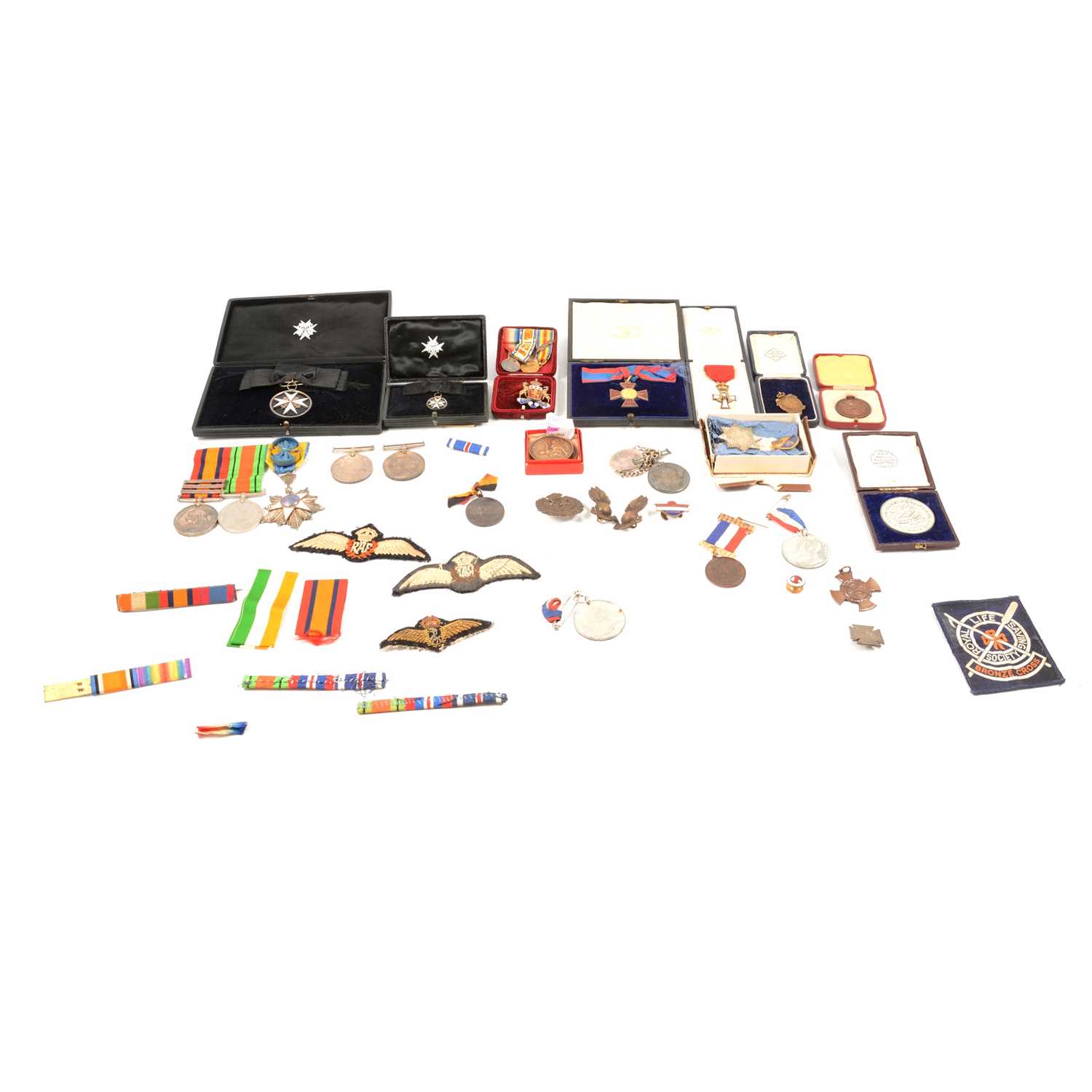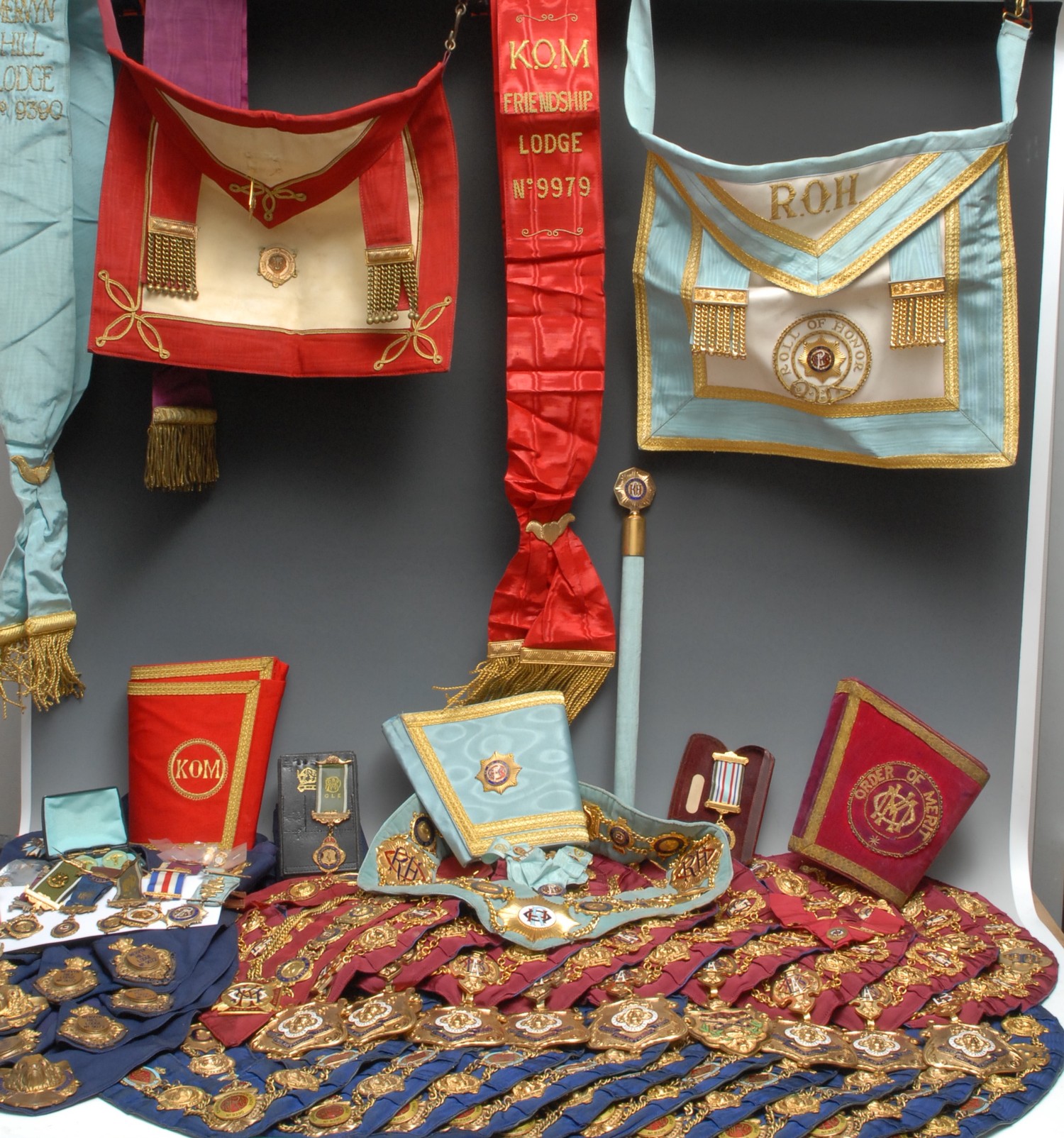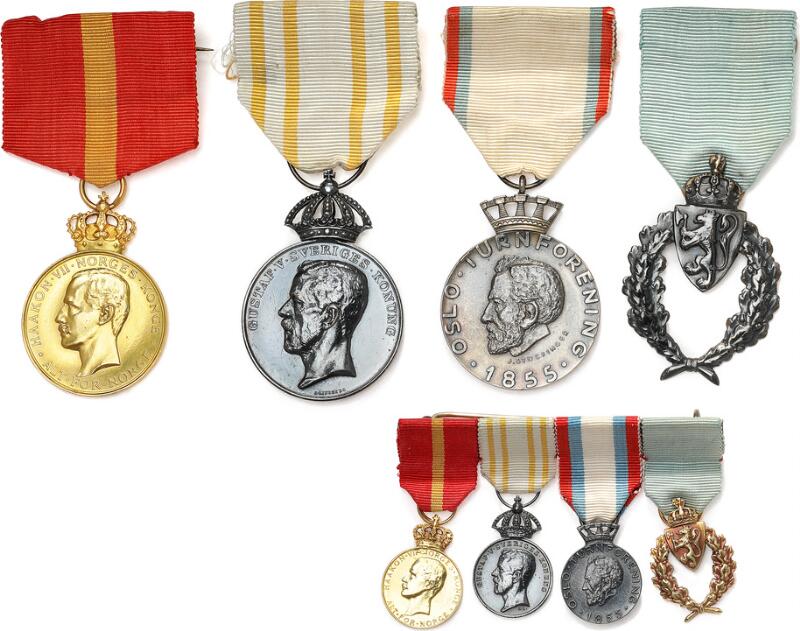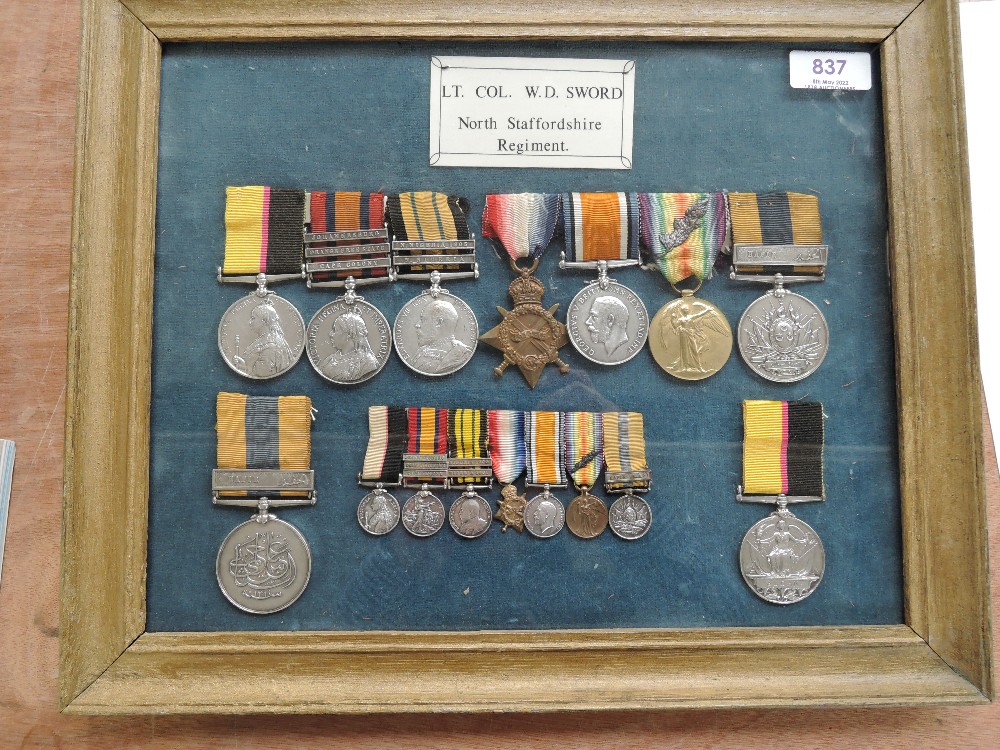The Collection of Medals formed by the late Tim Ash Indian Mutiny 1857-59, no clasp (G. B. Maconochie) extremely fine £400-500 Footnote George Back Maconochie was probably born in England, circa 1833. He was a member of the Bengal Uncovenanted Civil Service and was engaged during the mutiny with his more well-known companion and senior officer, Allan Octavian Hume, B.C.S., the Magistrate and Collector of Etawah. On learning of events at Meerut and Delhi, Hume organised police patrols to watch the roads and prevent mutineers from infecting his district. On 16 May one of his patrols brought in seven Sowars of the 3rd Light Cavalry from Meerut, but omitted to relieve them of their arms. At Etawah the Sowars levelled their carbines at the quarter-guard of the 9th N.I., and drawing their swords attacked the European officers. In the mêlée that ensued five of the troopers were killed and of the other two who escaped one was captured shortly afterwards. ‘This was the first retributive blow that fell upon the mutineers of the Third Cavalry. They were all Mohamedans (Pathans) of Futtehpore.’ Events deteriorated rapidly until the troops at the Station were in open revolt. Hume was briefly able to restore order in his district, though he suspended the collection of revenue, shrewdly considering that having lost five lakhs by the plunder of his treasuries, it was wiser to leave owed monies ‘in the hands of a thousand landholders than in a treasury guarded by sepoys too likely to mutiny’. Miscreants, however, were brought promptly to justice and at his hands received as impartial a trial as the circumstances allowed. He hanged only seven convicted murderers, and these ‘by methods which caused the least suffering’. By contrast, it was the proud boast of a colleague in another district that he hanged a hundred mutineers in three days - Hume was determined to uphold the law and steadfastly refused to be intimidated by those who venomously attacked him for his ‘excess of leniency’. Ultimately, however, he was forced to abandon Etawah in June following the mutiny of the Gwalior Contingent, and take refuge with other Europeans from stations in the North West Provinces at Agra. In early July 1857 both Maconochie and Hume served as volunteer gunners ‘with the right half-battery’ when the officers and able bodied men of that garrison sallied forth to Sucheta to do battle with mutineers from Neemuch, but were roundly beaten and driven back to Agra under a harassing fire. Throughout this period it would appear that Maconochie served as Hume’s deputy, an appointment that was formally confirmed as of 29 December 1857. Maconochie returned with Hume to Etawah in December 1857 where they re-organised the police, but were unable to re-establish the authority of the Government nor the collection of revenue until the end of 1858 when they succeeded in raising the large sum of twelve lakhs. In March 1858 they were joined by a column under Colonel Riddell of unspecified strength. The successful operations of Sir Hugh Rose’s Central India Field Force, in May and June 1858, then had an adverse effect on Hume’s efforts to clear his district, as large bodies of retreating rebels began to pass through Etawah in an attempt to escape into still disturbed Oudh. On 2 July Hume was forced through broken health to hand over his district temporarily to Mr G. E. Lance who, after a series of brisk actions against the followers of Rup Singh, was able to report on Hume’s return that order in some measure had been restored. However Hume’s ‘greatest trial was yet to come’, when in early December, Firuz Shah, ‘a prince of the royal family of Delhi’, ‘whose hands were free from innocent blood, and who might have secured a pardon and a pension by simple surrender, preferred to cut his way through the British territories’ while the other rebel leaders fled north into Nepal. Severely outnumbered, Hume’s force clashed with Firuz Shah’s, consisting of 1,400 sabres and nearly 200 disci
The Collection of Medals formed by the late Tim Ash Indian Mutiny 1857-59, no clasp (G. B. Maconochie) extremely fine £400-500 Footnote George Back Maconochie was probably born in England, circa 1833. He was a member of the Bengal Uncovenanted Civil Service and was engaged during the mutiny with his more well-known companion and senior officer, Allan Octavian Hume, B.C.S., the Magistrate and Collector of Etawah. On learning of events at Meerut and Delhi, Hume organised police patrols to watch the roads and prevent mutineers from infecting his district. On 16 May one of his patrols brought in seven Sowars of the 3rd Light Cavalry from Meerut, but omitted to relieve them of their arms. At Etawah the Sowars levelled their carbines at the quarter-guard of the 9th N.I., and drawing their swords attacked the European officers. In the mêlée that ensued five of the troopers were killed and of the other two who escaped one was captured shortly afterwards. ‘This was the first retributive blow that fell upon the mutineers of the Third Cavalry. They were all Mohamedans (Pathans) of Futtehpore.’ Events deteriorated rapidly until the troops at the Station were in open revolt. Hume was briefly able to restore order in his district, though he suspended the collection of revenue, shrewdly considering that having lost five lakhs by the plunder of his treasuries, it was wiser to leave owed monies ‘in the hands of a thousand landholders than in a treasury guarded by sepoys too likely to mutiny’. Miscreants, however, were brought promptly to justice and at his hands received as impartial a trial as the circumstances allowed. He hanged only seven convicted murderers, and these ‘by methods which caused the least suffering’. By contrast, it was the proud boast of a colleague in another district that he hanged a hundred mutineers in three days - Hume was determined to uphold the law and steadfastly refused to be intimidated by those who venomously attacked him for his ‘excess of leniency’. Ultimately, however, he was forced to abandon Etawah in June following the mutiny of the Gwalior Contingent, and take refuge with other Europeans from stations in the North West Provinces at Agra. In early July 1857 both Maconochie and Hume served as volunteer gunners ‘with the right half-battery’ when the officers and able bodied men of that garrison sallied forth to Sucheta to do battle with mutineers from Neemuch, but were roundly beaten and driven back to Agra under a harassing fire. Throughout this period it would appear that Maconochie served as Hume’s deputy, an appointment that was formally confirmed as of 29 December 1857. Maconochie returned with Hume to Etawah in December 1857 where they re-organised the police, but were unable to re-establish the authority of the Government nor the collection of revenue until the end of 1858 when they succeeded in raising the large sum of twelve lakhs. In March 1858 they were joined by a column under Colonel Riddell of unspecified strength. The successful operations of Sir Hugh Rose’s Central India Field Force, in May and June 1858, then had an adverse effect on Hume’s efforts to clear his district, as large bodies of retreating rebels began to pass through Etawah in an attempt to escape into still disturbed Oudh. On 2 July Hume was forced through broken health to hand over his district temporarily to Mr G. E. Lance who, after a series of brisk actions against the followers of Rup Singh, was able to report on Hume’s return that order in some measure had been restored. However Hume’s ‘greatest trial was yet to come’, when in early December, Firuz Shah, ‘a prince of the royal family of Delhi’, ‘whose hands were free from innocent blood, and who might have secured a pardon and a pension by simple surrender, preferred to cut his way through the British territories’ while the other rebel leaders fled north into Nepal. Severely outnumbered, Hume’s force clashed with Firuz Shah’s, consisting of 1,400 sabres and nearly 200 disci















Try LotSearch and its premium features for 7 days - without any costs!
Be notified automatically about new items in upcoming auctions.
Create an alert